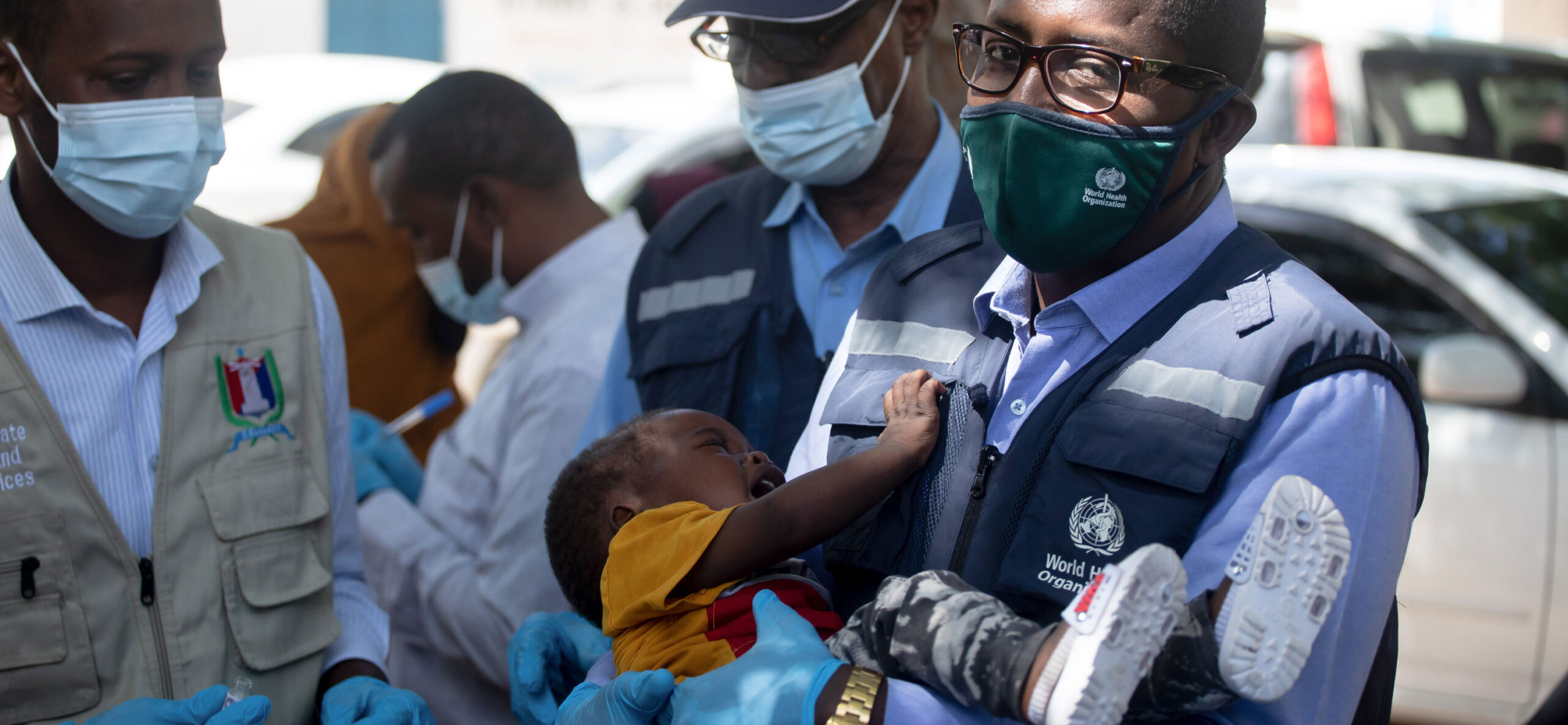

WHO Foundation the Sahel and Greater Horn of Africa Response
Frequently Asked Questions
-
For tens of millions of people living in the Greater Horn of Africa and the Sahel regions, getting enough food to eat and safe water to drink is proving nearly impossible. More than 60M people are expected to be acutely food insecure, causing dramatic impacts to their health. The worst drought in decades, coupled with steeply rising food prices, has increased people’s vulnerability to a range of life-threatening diseases. Malnutrition, as well as diarrhea and other waterborne diseases are more prevalent. Starvation, and in some countries, armed conflict, are forcing people from their homes in record numbers and while medical needs rise. Access to health services have decreased just when they are needed most.
The WHO Foundation’s Health Emergency Appeal: Drought Crises in the Sahel and Horn of Africa supports WHO’s efforts to increase the capacity of health workers, provide essential medicines and emergency nutrition, and vaccinations. WHO is also setting up mobile health centers for people forced to leave their homes. Along with countering the health consequences of drought and malnutrition, WHO is helping countries to detect, prepare for and respond to outbreaks of diseases like cholera, measles, and malaria. Coordinated action is needed now to prevent people from dying of hunger and disease.
Visit WHO webpages for more information:
-
The added value of health in preventing and responding to food, nutrition and famine emergencies has often been underestimated, if not neglected. However, this is a crucial element in preventing, reducing and reversing the relationship between poor nutrition, disease and death.
WHO’s emergency response is focused on ensuring affected populations can access essential health services when they need it the most. WHO team give a particular consideration to the increased vulnerability of certain populations, such as the elderly, women and girls, pastoralists, people on the move and persons with disabilities, WHO is setting up regional hubs, where it will coordinate the response and organize the delivery of life-saving medical supplies. These supplies include medicines, vaccines, as well the equipment needed to treat those who are severely malnourished. Other than providing these critical supplies, WHO is working with ministries of health in the affected countries to set up robust disease surveillance systems to be able to quickly detect and respond to disease outbreaks.
-
As an individual or a company, you can help provide vital aid to the people of the greater Horn of Africa and Sahel regions, thanks to your contributions. Your donation can be made from anywhere in the world. Tax-deductible donations are available to contributors based in Switzerland and Liechtenstein.
Your contribution counts!
Individual contributions can be made directly on the WHO Health emergency appeal webpage, powered by the WHO Foundation.
If you are a company interested in making a corporate donation or in engaging its employees via a matching gift initiative, please contact d.nelson@who.foundation.
According to our gift acceptance policy, all donors shall not have interests in the arms and tobacco industry. By giving to the WHO Foundation, you fully agree with the following statement: “I certify that I am neither employed in, nor possess a significant financial interest in the arms or tobacco industry or listed on the UN sanctions list. Direct donations from governments and their agencies, as well as donations from entities and individuals affiliated with the arms or tobacco industries, or mentioned on UN sanctions lists, cannot be accepted and will be returned if received.”
For any donation of equal to or higher than $10,000 USD, please contact our Philanthropy team at e.hulme@who.foundation. You will be requested to provide your name, surname, place or residence and date of birth, and sign an Arms & Tobacco disclosure statement. If you donate an amount equal to or higher than $10,000 USD and we are unable to reach you or have the Arms & Tobacco statement signed, your generous donation will unfortunately be returned.
Please note that the WHO Foundation cannot accept checks.
-
Contributions will finance WHO’s vital support in response to the health emergency created by the drought crisis in both the greater Horn of Africa and the Sahel regions. Given the rapid unfolding of the situation and the evolving needs, the funds raised by WHOF campaign will be channeled to WHO Health Emergencies Programme so as to allow the maximum flexibility to allocate funds to the region or the country that needs it most.
Please visit WHO webpages on the Sahel and the Horn of Africa for more information on the activities led by WHO’s frontline response.
-
Established in 2020 as an independent entity, the WHO Foundation complements and strengthens the work of WHO and its global network of partners by mobilizing new funding from diverse sources—including corporations and the general public—to power WHO’s mission. By addressing the world’s most urgent health issues in a new, transformative, catalytic way, the WHO Foundation aims to provide everyone, everywhere, a healthier, more equitable future.
-
WHO Foundation general enquiries & donations:
sahel-hoa-emergency-appeal@who.foundationCorporate donations:
d.nelson@who.foundationIndividual donations of $10,000 USD and more:
e.hulme@who.foundationMedia enquiries:
media@who.foundation